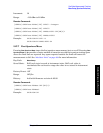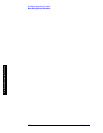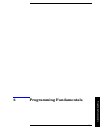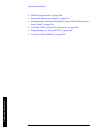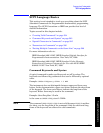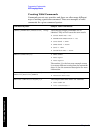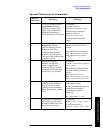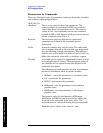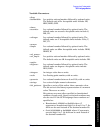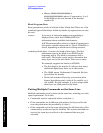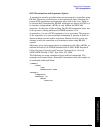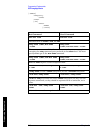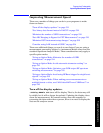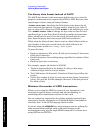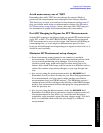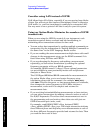
Chapter 6 507
Programming Fundamentals
SCPI Language Basics
Programming Fundamentals
Variable Parameters
<freq>
<bandwidth> Is a positive rational number followed by optional units.
The default unit is Hz. Acceptable units include: HZ,
KHZ, MHZ, GHZ.
<time>
<seconds> Is a rational number followed by optional units. The
default units are seconds. Acceptable units include: S,
MS, US.
<voltage> Is a rational number followed by optional units. The
default units are V. Acceptable units include: Volts, V,
MV, UV.
<power>
<ampl> Is a rational number followed by optional units. The
default units are dBm. Acceptable units include: DBM,
DBMV, W.
<rel_power>
<rel_ampl> Is a positive rational number followed by optional units.
The default units are dB. Acceptable units include: DB.
<angle>
<degrees> Is a rational number followed by optional units. The
default units are degrees. Acceptable units include:
DEG, RAD.
<integer> An integer value has no units.
<real> Is a floating point number, with no units.
<percent> Is a rational number between 0 and 100, with no units.
<string> Is a series of alpha numeric characters.
<bit_pattern> Specifies a series of bits rather than a numeric value.
The bit series is the binary representation of a numeric
value. There are no units.
Bit patterns are most often specified as hexadecimal
numbers, though octal, binary or decimal numbers may
also be used. In the SCPI language these numbers are
specified as:
• Hexadecimal, #Hdddd or #hdddd where ‘d’
represents a hexadecimal digit 0 to 9 and ‘a’ to ‘f’. So
#h14 can be used instead of the decimal number 20.
• Octal, #Odddddd or #odddddd where ‘d’ represents
an octal digit 0 to 7. So #o24 can be used instead of
the decimal number 20.



